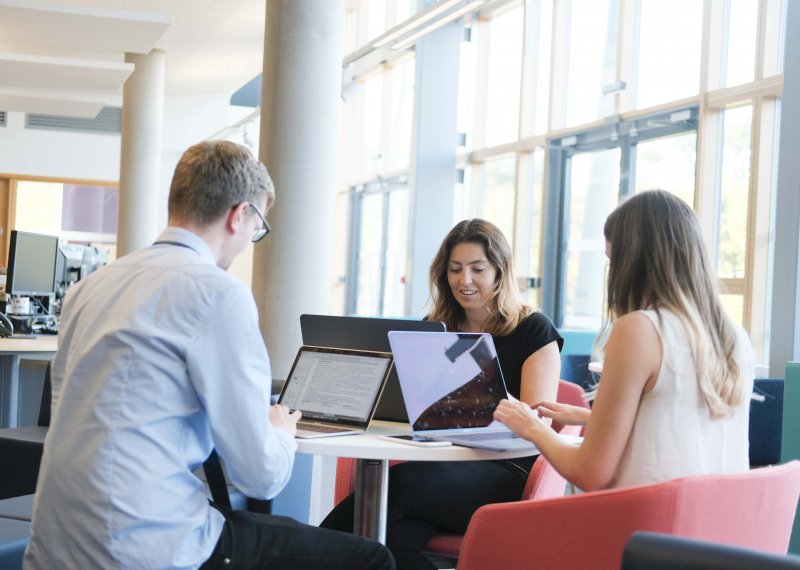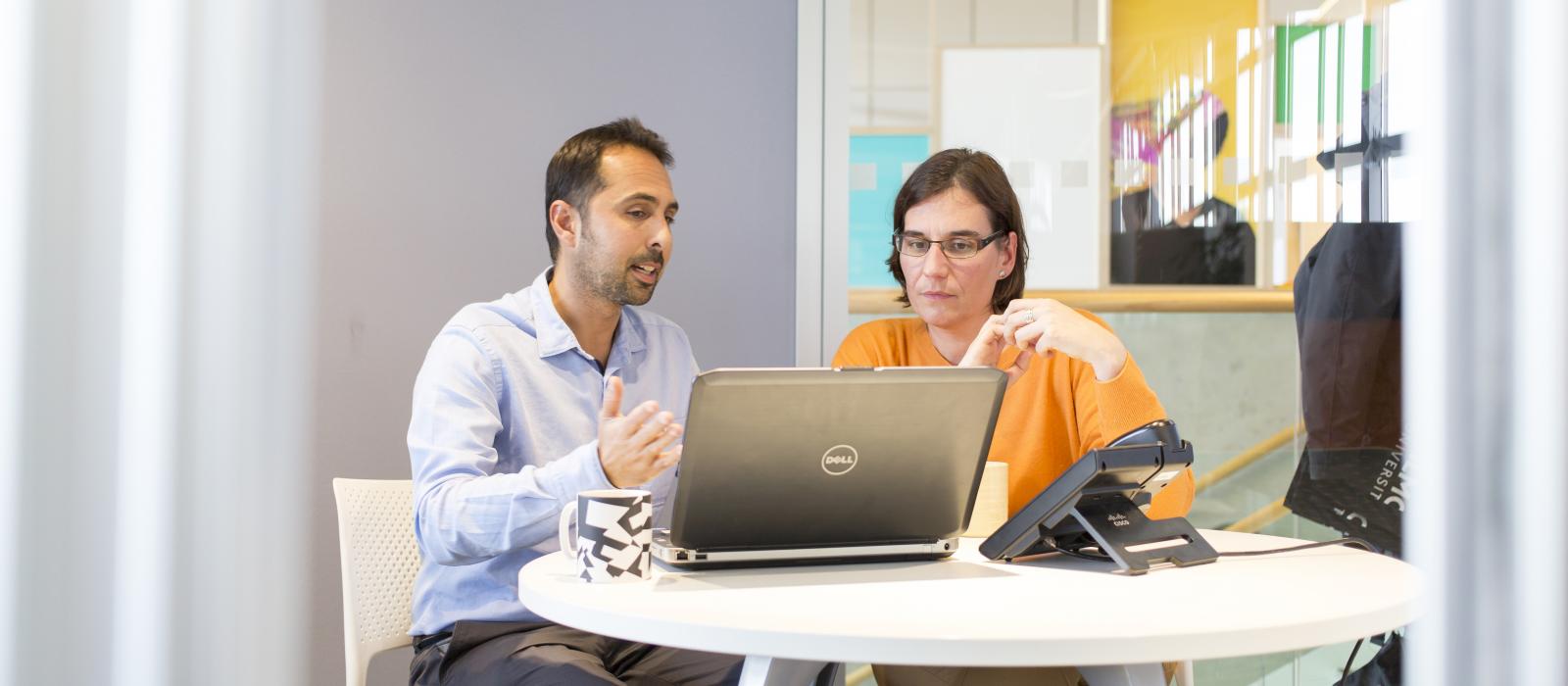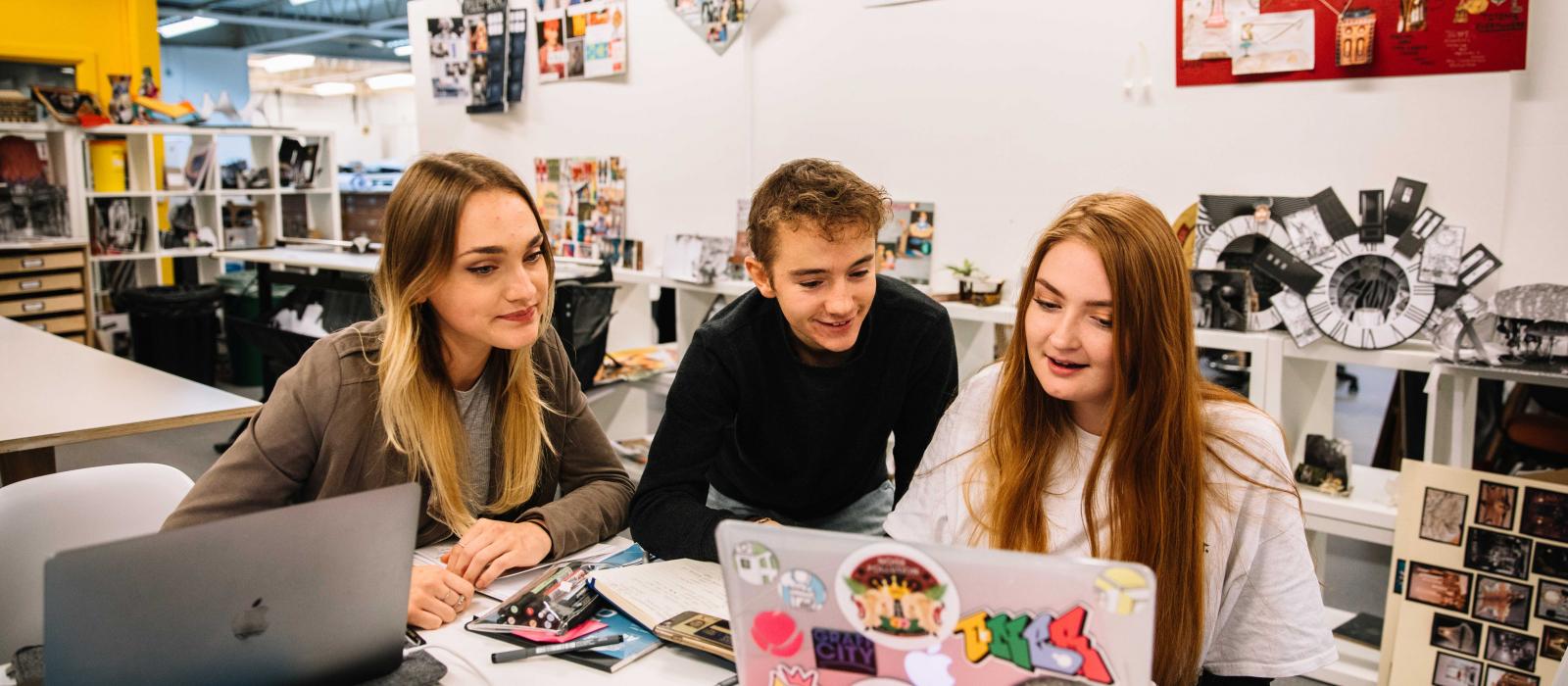Accessibility Statement

1. Scope
This accessibility statement applies to www.falmouth.ac.uk, the public website for Falmouth University only. This statement does not cover subdomains, other brands or organisations associated with Falmouth.ac.uk.
This website (www.falmouth.ac.uk) is managed by Falmouth University. We want as many people as possible to be able to use this website. For example, that means you should be able to:
- Navigate the website using the keyboard
- Navigate the website using a screen reader (including the most recent versions of JAWS, NVDA and VoiceOver)
- Navigate the website using speech recognition software
- Zoom in up to 400% without the text spilling off the screen
- Use the quick links to skip to the main content, menu and search
- We’ve also made the website text as simple as possible to understand
AbilityNet has advice on making your device easier to use if you have a disability.
2. How accessible this website is
We know some parts of this website are not fully accessible:
- Some of our online forms are difficult to navigate using just a keyboard and do not have sufficient colour contrast in their guidance notes
- Not all elements on our site have sufficient colour contrast
- Some form buttons are unclear when using assistive technologies to understand what to input
- We have chosen to use YouTube as our primary video player due to its accessibility features, integrations and fast load times. We have implemented certain accessibility improvements to our YouTube embeds such as accessible titles. However, some accessibility errors remain as they can only be fixed by YouTube itself. These errors include ‘Elements must only use allowed ARIA attributes’. While we would prefer a completely accessible video player, we have experienced the same limitations as the Government’s Digital Service list on the GOV.UK website and YouTube remains the best option for our users. As and when YouTube update its accessibility, we will review and update this statement.

3. Feedback and contact information
If you need information on this website in a different format like accessible PDF, large print, easy read, audio recording or braille, you can contact us using our online form.
This form is monitored by the Web Team at Falmouth University. We’ll consider your request and get back to you in 5 working days with an acknowledgement and 20 working days with a full response.
4. Reporting accessibility problems with this website
We’re always looking to improve the accessibility of this website. If you find any problems not listed on this page or think we’re not meeting accessibility requirements, contact us using our online form.
This form is monitored by the Web Team at Falmouth University. We’ll consider your request and get back to you in 5 working days with an acknowledgement and 20 working days with a full response.
5. Enforcement procedure
The Equality and Human Rights Commission (EHRC) is responsible for enforcing the Public Sector Bodies (Website and Mobile Applications) (No. 2) Accessibility Regulations 2018 (the ‘accessibility regulations’). If you’re not happy with how we respond to your complaint, contact the Equality Advisory and Support Service (EASS).

6. Contacting us by phone or visiting us in person
If you wish to contact us by phone or visit in person then we encourage you to use our online enquiry form to let us know of any needs you may have. We will then do our best to answer these needs.
This form is monitored by the Web Team at Falmouth University. We’ll consider your request and get back to you in 5 working days with an acknowledgement and 20 working days with a full response.
Our campus accessibility guide
We have partnered with AccessAble, one of the UK’s largest disability information providers, to produce an Access Guide for visiting, studying and working at Falmouth University. The online guide gives detailed information on the accessibility of buildings and services across our two campuses.
7. Technical information about this website's accessibility
Falmouth University is committed to making its website accessible, in accordance with the Public Sector Bodies (Websites and Mobile Applications) (No. 2) Accessibility Regulations 2018.
This website is partially compliant with the Web Content Accessibility Guidelines version 2.2 AA standard, due to the non-compliances listed below.
The content listed below is non-accessible for the following reasons.
Non-compliance with the accessibility regulations
Content Issues
| Issue | Criteria affected | How we'll deal with the issue |
|---|---|---|
| Images have contrast issues | WCAG 1.4.3 | Where this is student, graduate or staff work we will not be fixing contrast issues due to copyright |
| Content does not have sufficient contrast | WCAG 1.4.3 | We are working with our third-party suppliers for fixes to their embeds on our website |
| Lists in third party embeds are not semantically correct for screenreader users in some embeds | WCAG 1.3.1 | We are working with our third-party suppliers for fixes to their embeds on our website, deadline pending |
| Frame titles to describe embeds on the website are missing for screenreader users on some pages | WCAG 2.4.1 | We are working with our third-party suppliers for fixes to their embeds on our website, deadline pending |
| Form labels to help assistive technologies understand inputs for form fields are missing on some pages | WCAG 4.1.2 | We are working with our third-party suppliers for fixes to their embeds on our website, deadline pending |
| Video embeds have disallowed ARIA attributes making them difficult to use | WCAG 4.1.2 | This relies on our 3rd party video player Youtube. Please see section 2. How accessible is our website for more information |
We do not consider any content on the website to fall under disproportionate burden.
We do not consider any content on this website to fall outside of the accessibility regulations.
8. What we’re doing to improve accessibility
Our accessibility roadmap above [section 7. Non accessible content] shows how and when we plan to improve known accessibility issues on this website.
We recognise that ensuring accessibility compliance to WCAG 2.2 AA standards is an ongoing process. We have incorporated content and development WCAG 2.2 AA compliance into our BAU management of Falmouth.ac.uk. We have outlined below how we do this:
We use the following tools to test our accessibility:
- Individual page testing with aXe and WAVE
- Manual device testing
We use aXe and WAVE to identify the location of the individual issues. These are divided into content-based issues which can be fixed by our Web Editors, and development-based issues which require development changes from our third-party development agency.
These are dealt with on a monthly basis. Once the accessibility report has been generated, we fix all the issues raised.
These are dealt with by our third-party development provider. We submit tickets to our developer and they are actioned within a planned sprint and then deployed to live after testing.
Content
We have accessibility guidance available internally for staff across the University as well as training within the Web Team to enable all contributors to produce and deliver content which is verified as compliant before it is published on the website.
Development
Our procurement process for development agencies requires the supplier to be able to develop to WCAG 2.2 AA standards. Our development agency therefore understands the legislation and has a proven track record of accessible development. All new features are developed according to WCAG 2.2 AA and tested using aXe by our developer’s QA team before coming over to our in-house team for sign-off. It is then re-tested by our in-house team before being signed-off for deployment.

9. Preparation of this accessibility statement
This statement was first prepared on 23 September 2019. It was last reviewed on 14 August 2025.
The website was last tested on 14 August 2025. The test was carried out by the Falmouth University Web Team.
We carry out sitewide testing using the aXe and WAVE tools. You can read about our testing in section 8, and how we fix or manage any errors in section 7.